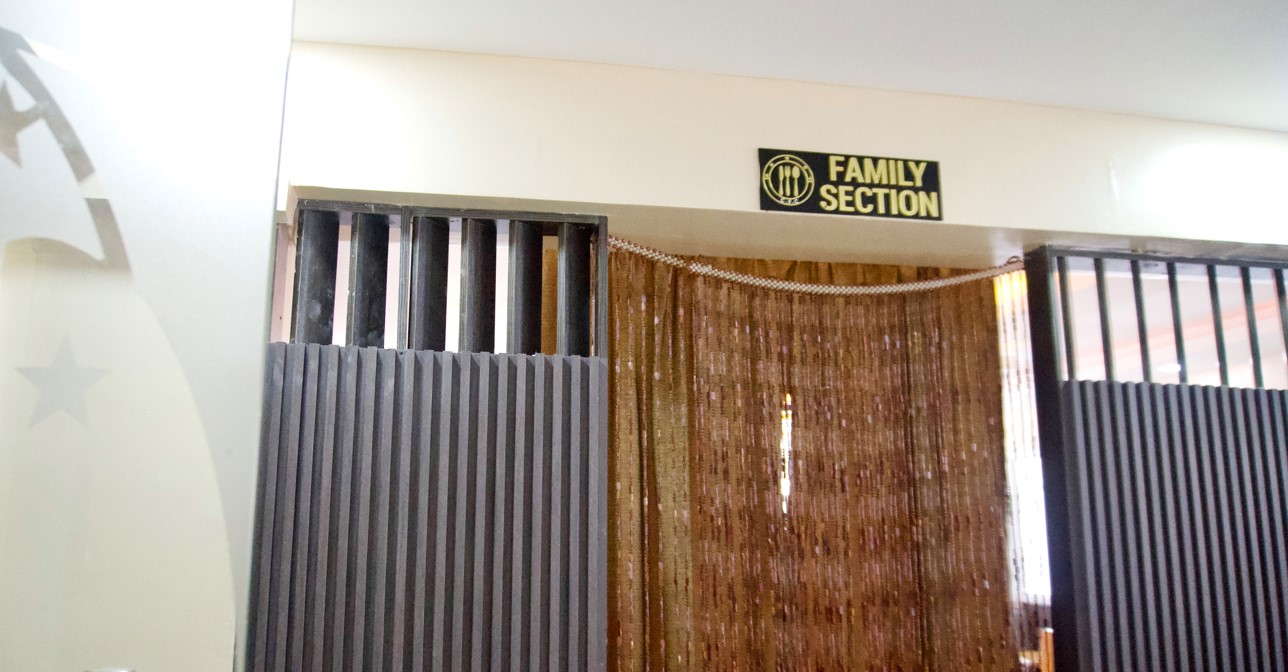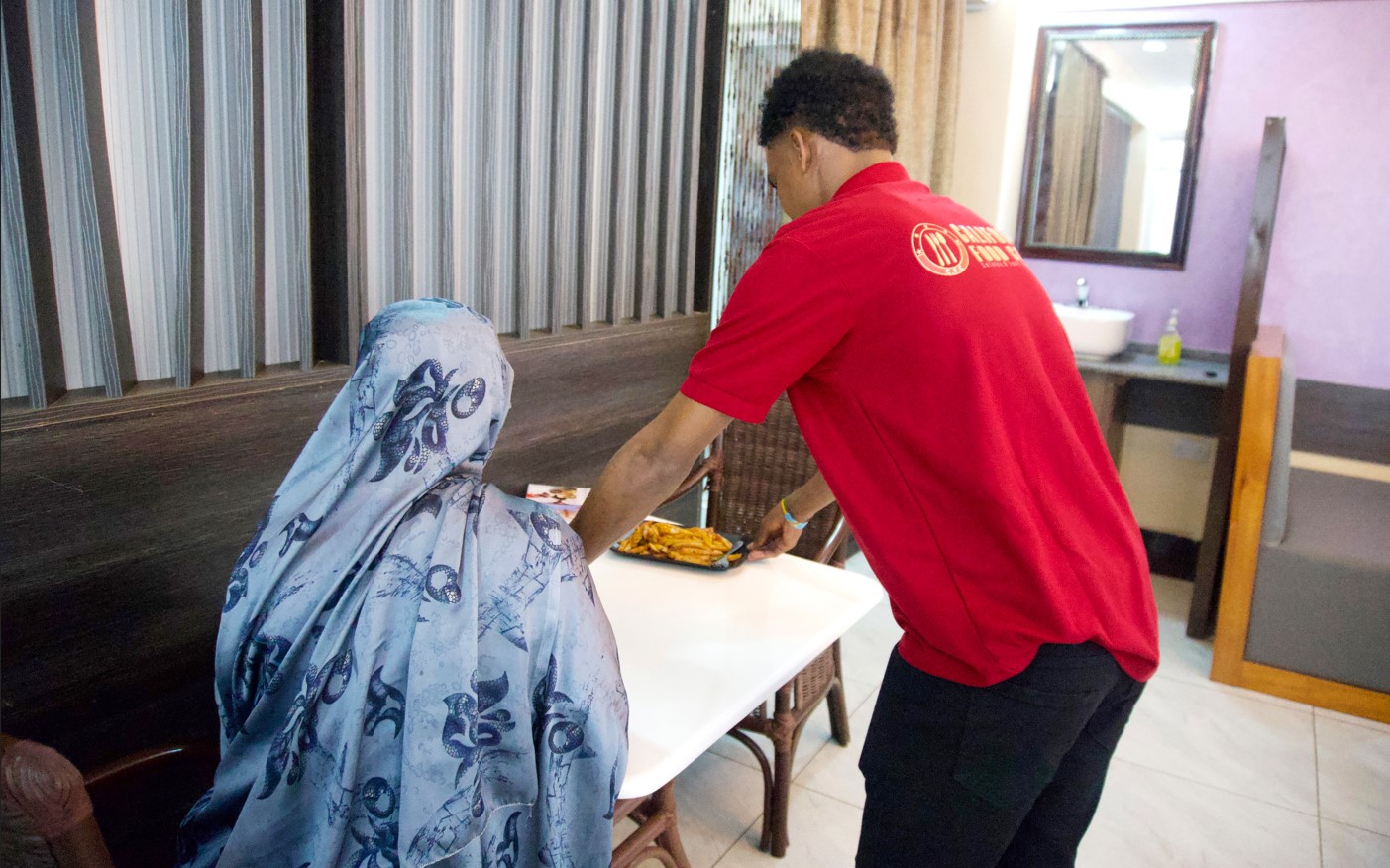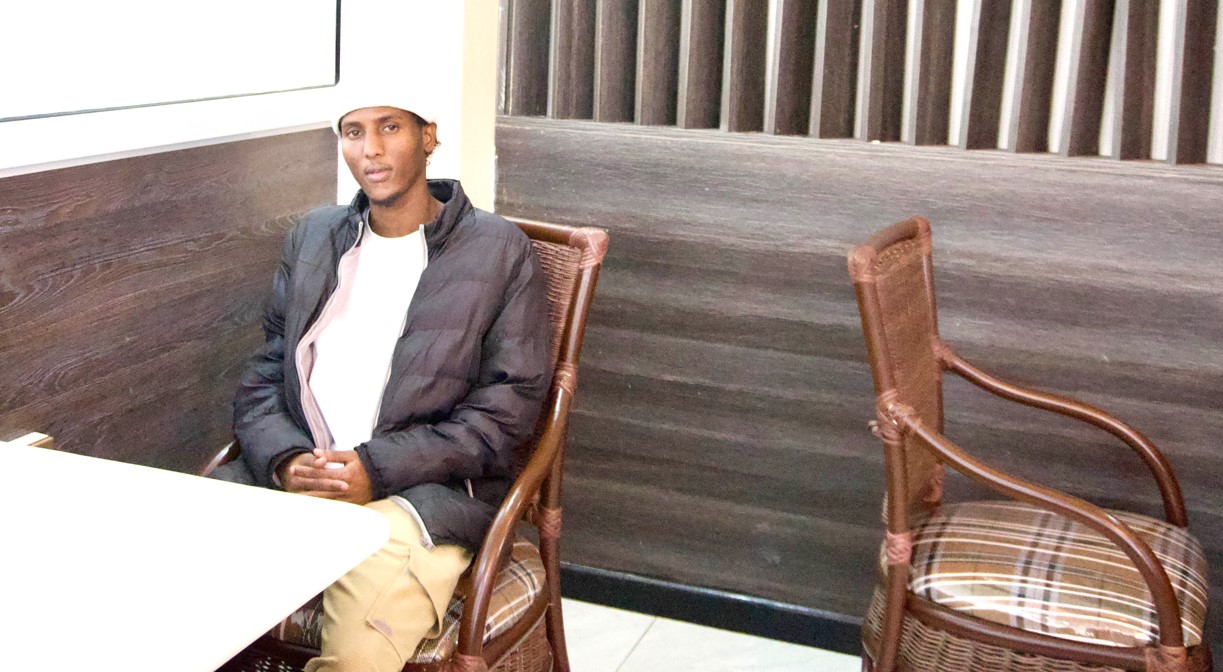Somali restaurants uphold tradition with distinct dining for men and women

This practice aligns with the principles outlined in the Quran, where men and women do not mix during meals or in mosques
Hannah recalls feeling quite awkward after visiting a Somali restaurant and noticing she was surrounded by men. She was the only woman here despite the hotel being full of customers.
Out of curiosity, she decided to visit another restaurant to confirm if the same trend persisted. To her surprise, the scenario was the same.
More To Read
- Nairobi hosts third Somali Cultural Festival as crowds flock to Two Rivers Mall
- How to make Kac Kac, the crispy Somali tea biscuits
- Somali culture, wildlife and hospitality draw tourists to Garissa’s Bulla Adey village
- Jifora restaurant: The secret luxury spot transforming Eastleigh's dining scene
- How to make muufo: Traditional Somali maize flatbread making a comeback in Nairobi kitchens
- Eastleigh's hidden gem: Fadumahindi Restaurant offers tasty culinary delights and inclusivity
"That was when I decided to inquire, and, to my surprise, I learned that Somali restaurants have different sections for men and women," Hannah said.
As a Gen Z with an insatiable appetite for trying different cuisines, Hannah assumed she could sit anywhere in the restaurant, just like in other hotels.
Initially, it was a culture shock moment for her, but she appreciated the insight and quickly moved to the women's or family section.
"When the waiter explained how Somali restaurants operate, I embraced it quickly because I enjoy their food and the diversity, and, honestly, it felt better," she said.
Like Hannah, when you visit a Somali restaurant for the first time, you will notice distinct sections that cater specifically to the needs of women. This phenomenon is a much-appreciated practice among Somali women.
 Sadiya Ahmed is served at the California Food Court, a Somali restaurant on Eastleigh's Waudo Street in Kamukunji Constituency, Nairobi. (Photo: Hafsa Hassan/EV)
Sadiya Ahmed is served at the California Food Court, a Somali restaurant on Eastleigh's Waudo Street in Kamukunji Constituency, Nairobi. (Photo: Hafsa Hassan/EV)
Speaking to The Eastleigh Voice, Sadiya Ahmed, 20, said she enjoys dining out with her friends at various restaurants, and that the women's sections make her feel comfortable.
"It's nice to have privacy; you can eat without men looking at you and enjoy your food. Many restaurants are thoughtful to have this section, especially when you come on a date with your friends," said Sadiya.
She noted that the women or family sections are usually quieter, with fewer people, and offer a pleasant place to enjoy spending time together compared to the general sections.
In many Somali restaurants, men tend to spend a significant amount of time socialising, especially during events like football games. This often results in a noisy atmosphere that can be overwhelming for women and families.
The introduction of women's sections addresses this by providing a quieter, more serene dining experience.
"Sometimes, when you come with your family, you can go to the women's section. Women’s sections usually have fewer people. There is privacy, and the waiters are the only contacts you have," Sadiya said.
This practice aligns with the principles outlined in the Quran, where men and women do not mix during meals or in mosques. Similarly, in public spaces, the concept of mahram (non-permissible mixing between men and women who are not closely related) is observed.
This cultural norm extends to restaurants, where women often choose to sit in designated sections with their families for privacy and comfort.
For Rahma Abdi, the family and women's sections are ideal, especially when one has children.
"Children can be jumpy, and being in the general section can sometimes be embarrassing, especially around men. This integration accommodates my family needs, which is why I enjoy it," Rahma said.
She said in Somali culture, where modesty and respect for personal space are paramount, such considerations are deeply appreciated.
 Ahmed Muktar Ibrahim, a supervisor at the California Food Court, a Somali restaurant on Eastleigh's Waudo Street in Kamukunji Constituency, Nairobi. (Photo: Hafsa Hassan/EV)
Ahmed Muktar Ibrahim, a supervisor at the California Food Court, a Somali restaurant on Eastleigh's Waudo Street in Kamukunji Constituency, Nairobi. (Photo: Hafsa Hassan/EV)
Ahmed Muktar Ibrahim, a supervisor at the California Food Court in Eastleigh, explained that initially, they didn't have separate sections. However, they quickly noticed that women felt uncomfortable, prompting them to integrate women and family sections into their restaurant.
He said women would often walk out of the restaurant when they found it patronised by many men, especially during games like football.
To address this pressing need, they decided to partition the restaurant and include sections for women and families to accommodate those who felt uncomfortable in the general area.
Introducing these sections has not only enhanced the dining experience for women but also positively impacted the business. It created a more inclusive environment that respects cultural values and meets the diverse needs of diners.
Ahmed emphasised that while there are no strict rules, everyone has the freedom to choose where they sit. The sections are provided specifically for those who value privacy and prefer to dine or socialise in a more secluded setting.
Many of these restaurants also include prayer sections for both men and women, reinforcing the cultural and religious practices that are integral to Somali society.
The separation of men and women during prayer and meals reflects broader societal norms and helps create a harmonious environment where everyone feels respected and accommodated.
The integration of women's sections in Somali restaurants represents a thoughtful adaptation to cultural values and a strategic business move that enhances customer satisfaction and loyalty. By recognising and respecting the importance of privacy and modesty, these establishments are creating spaces where women can feel comfortable and enjoy their dining experience to the fullest.
This separation, known as gender segregation or "hajanib," ensures that both men and women can focus on their spiritual or social interactions without undue distractions or immodest behaviour.
It reflects a cultural and religious practice aimed at upholding respect and decorum in public spaces and religious settings.
Top Stories Today












































